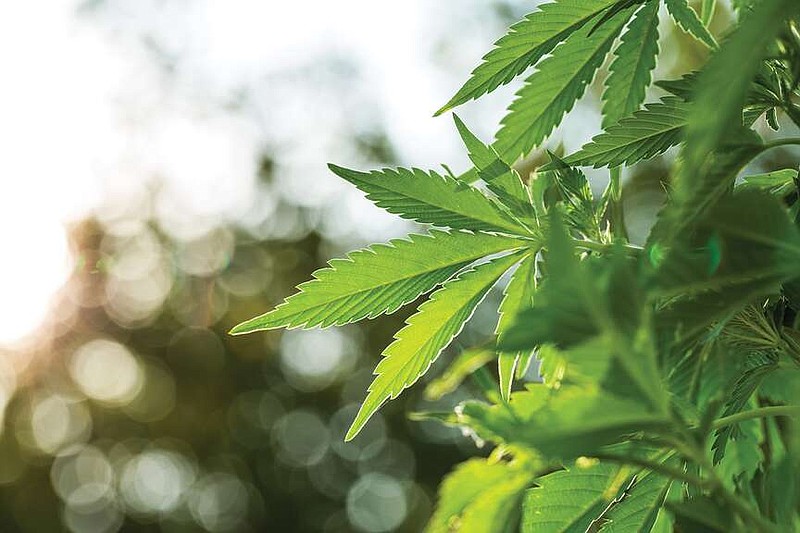A Pulaski County Circuit Court judge will rule later this month whether the First Amendment gives Arkansas medical marijuana cultivators the right to advertise their product.
Attorneys for Good Day Farm, a Pine Bluff medical marijuana cultivator, argued in court Thursday that state-imposed limits on marketing are illegal, saying the First Amendment gives medical marijuana companies the right to advertise their products.
Defending the state, the Arkansas Attorney General's Office argued state regulators should be allowed to place stringent regulations on medical marijuana marketing, given the product is still illegal under federal law.
Thursday's hearing was part of Good Day Farm's ongoing ligation against the state, arguing a host of laws the General Assembly passed regulating medical marijuana are unconstitutional. In June, Pulaski County Circuit Judge Morgan "Chip" Welch declared 27 laws regulating medical marijuana in Arkansas void and unconstitutional, saying the state Legislature overstepped its authority when it passed legislation changing the constitutional amendment that legalized the drug.
Part of Good Day Farm's lawsuit sought to challenge the state's ability to regulate the ability for medical marijuana businesses to advertise. Welch deferred ruling on the issue over advertising, which was argued in court Thursday. Welch said he will rule the matter later this month.
After voters approved Amendment 98, legalizing medical marijuana in 2016, the Department of Finance imposed rules on how the dispensaries and cultivators can advertise their products. Under those rules, cultivators like Good Day Farm are prohibited from marketing their products "through any public medium or means designed to market its products to the public."
In court Thursday, Good Day Farm attorney Gary Marts argued that the rules were unconstitutional, violating his client's First Amendment right of to commercial speech, and the Arkansas Constitution, which legalized medical marijuana.
While Good Day Farm does not sell its products directly to consumers, Marts likened the cultivators' desire to advertise to that of Anheuser-Busch, the brewing company which does not sell its products to consumers directly but instead to licensed retailers.
Noah Watson, a lawyer from the attorney general's office, argued that federal law, which classifies marijuana as a Schedule 1 substance, allows the state to place heavy restrictions on how it can be advertised. Watson also said cultivators cannot sell their products directly to the public and that dispensaries have to follow rules, such as advertising cannot appear in places where at least 30% of the audiences is likely to be younger than 18.
Watson said the concern is medical marijuana marketing could be shown in places with children present and that the state has an interest in making sure the product's advertising is tightly controlled.
Marts countered that while marijuana is federally illegal, Congress has prohibited the Department of Justice from prosecuting people who use medical marijuana, which is legal in most states. He also said voters legalized medical marijuana in 2016, and the state should follow the Arkansas Constitution and treat medical marijuana like the legal product it is under state law.
The issue is something Arkansas medical marijuana businesses have watched closely because some have wanted to be able to more freely market their products.
Welch has already declared 27 laws regulating medical marijuana in Arkansas void from his decision in June. Some of the laws include how the state regulated how much THC -- the drug's psychoactive compound -- can be in marijuana products and how it taxes the drug.
Welch said those 27 laws amounted to changes to Arkansas' Constitution, specifically Amendment 98, and that the Legislature did not refer those changes to the people.
